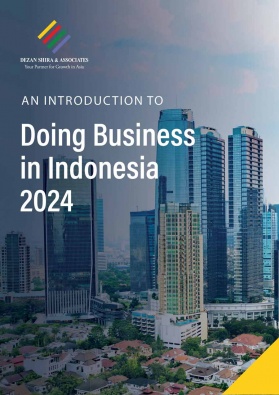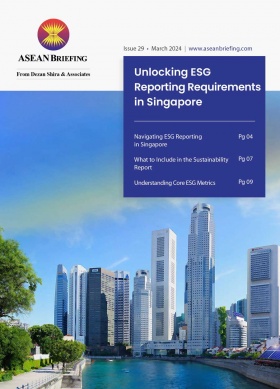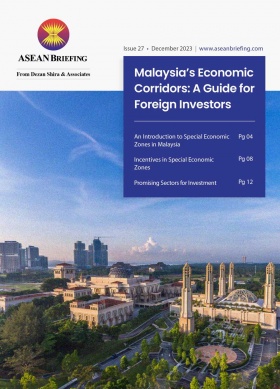The Guide to Employment Contracts for Foreign Workers in Indonesia
Key employment regulation in Indonesia
The main sources of employment and labor laws in Indonesia are:
- Labor Law of 2003 on Manpower as amended by Law No. 11 of 2020 on Job Creation and recently revoked by Government Regulation in Lieu of Law No. 2 of 2022 on Job Creation and further stipulated under Government Regulation 6 of 2023;
- Law No. 21 of 2000 on Labor Union; and
- Law No. 2 of 2004 on Industrial Relations Dispute Settlement.
Fixed term contracts
Under implementing regulation 35 of 2021 (GR35/2021), the government recognizes three types of fixed-term contracts (FTC):
- FTC based on the completion of work;
- FTC based on the period of time; and
- FTC related to non-permanent work.
GR 35/2021 states that all FTC types are for work that is temporary and can be completed within a set time period, therefore any contract extensions cannot be for prolonged periods (5 years maximum in total). Failing to adhere to these rules will result in the employee being deemed to be on a permanent employment contract.
Foreign worker utilization plan
On March 31, 2021, Indonesia’s Ministry of Manpower issued Regulation No. 8 of 2021 (MOM Reg 8/2021) on the Employment of Foreign Workers. MOM Reg 8/2021 is an implementing regulation to GR 34/2021 and provides in detail the requirements for businesses to fulfill in order to hire foreign workers.
For a local company to employ a foreign worker, they must prepare a Foreign Worker Utilization Plan (Rencana Penggunaan Tenaga Kerja Asing (RPTKA)) — a document that details the specific work, position, and length of employment the foreign employee will undertake in Indonesia. The RPTKA now also serves as the basis for the MOM to grant visas and stay permits.MOM Reg 8/2021 the sponsor company has to seek approval from the Ministry of Manpower (MOM) for approval of a Foreign Worker Utilization Plan (Rencana Penggunaan Tenaga Kerja Asing (RPTKA)).
The applicant’s sponsor must then pay US$100 in advance as part of the Development Fund for Expatriate Workers Law (DKPTKA) to the MOM. This amount is to be paid monthly to the MOM.
If the RPTKA is approved, the foreign worker can legally work in Indonesia. After this, the immigration office can issue a limited-stay visa (VITAS). Upon arriving in Indonesia, the applicant must convert their VITAS into a limited stay permit (KITAS).
Types of RPTKA
There are four types of RPTKA categorized under MOM 8/2021.
| RPTKA type | Validity |
|---|---|
| Temporary work (production quality control, filming work, installation of machines etc) | Valid for up to six months and cannot be extended |
| Employment for more than six months | Valid for up to two years with possibility for extension |
| Employment that does not require payment to the Foreign Worker Utilization Compensation Fund | Valid for up to two years with possibility for extension |
| Employment in special economic zones (SEZ) | Valid for five years with possibility for extension; or The SEZ RPTKA for directors or commissioners can be granted for a period as needed by the employer |
What is the process of hiring foreign workers in Indonesia?
It is the responsibility of the local company to apply for the RPTKA, which can be done through the online portal, under the Ministry of Manpower. The application is addressed to the Director of Foreign Manpower Utilization Management (Direktur Pengendalian Penggunaan Tenaga Kerja Asing). However, if the application is for less than 50 foreign workers – then the application is addressed to the Director-General of Manpower Placement Guidance and Expansion of Work Opportunity (Direktur Jenderal Pembinaan Penempatan Tenaga Kerja dan Perluasan Kesempatan Kerja).
Who can apply?
According to MOM 8/2021, employers that can employ foreign workers include:
- Government institutions, international bodies, and foreign state representatives;
- Foreign trade representatives, foreign news agencies conducting activities in Indonesia, and foreign representative offices;
- Foreign private companies conducting business in Indonesia;
- Legal entities such as private limited companies established in Indonesia;
- Social, religious, or cultural institutions;
- Entertainment management entities; and
- Other business entities are allowed to employ foreign workers.
RPTKA assessment
Once submitted, the MOM will conduct a feasibility study to see if the employer and prospective employee meet all the requirements. Employers are required to submit the following information:
- Identity of the employer;
- Reasons for utilizing a foreign worker;
- The position of the foreign worker within the company’s organization structure;
- Number of foreign workers being employed;
- Contract length of the foreign employee;
- The working location of the foreign employee;
- Proof of mandatory employment reporting by the employer; and
- Statement letter affirming the following:
-
- The designation of the Indonesian employee(s) assigned as a co-worker to the foreign employee;
- The Indonesian employee(s) will receive training or education from the foreign employee in accordance with the position and qualifications of the foreign employee; and
- Ensure the foreign worker returns to their home country once their work contract expires.
- Future plans to absorb Indonesian workers.
The results of this assessment will be issued in no more than two working days.
Personal information submission
The employer can submit the personal information and documents of the foreign worker after the RPTKA assessment or during the submission of the RPTKA documents. The personal information will be verified by the MOM within two working days.
RPTKA approval and payment
If the documents and information declared to the MOM are correct and complete, the MOM will issue a payment notification letter for the amount of US$100 to the Foreign Workers Compensation Fund (Dana Kompensasi Penggunaan Tenaga Kerja Asing or DKP-TKA). This amount is to be paid to the MOM every month.
Once the employer has made the payment, the MOM will issue the RPTKA approval, and the data will be sent to the Ministry of Law and Human Rights, which will process the visa and stay permits. Payment of the DKP-TKA is waived for foreign state representatives, international bodies, religious institutions, social institutions, and certain positions in the education sector.
Annual reporting obligations
Employers must submit an annual report to the MOM that covers the scope of the foreign worker’s employment, the education or training facilitated to Indonesian co-workers, and the types of technology transfer implemented.
RPTKA exemptions
There are RPTKA exemptions for foreign workers who are members of the board of directors, members of the board of commissioners, diplomatic or consular staff, or are hired by the local employer in connection to emergency activities, vocational activities, or in connection to production activities of an Indonesian-based tech startup.
Specifically, for tech-based startups and vocational training activities, the RPTKA exemption lasts for no more than three months, after which the company must apply for RPTKA approval. This application must be submitted at least two weeks before the expiration of the period of employment of the foreign worker, as stated in the foreign worker employment statement letter, which is issued in place of an RPTKA approval.
The MOM will issue the IMTA, and the immigration office will issue a limited-stay visa (VITAS). Upon arriving in Indonesia, the applicant must convert their VITAS into a limited stay permit Kartu Izin Tinggal Terbatas (KITAS).
Additional requirements to obtain a VITAS
Once a foreigner has received sponsorship to work in Indonesia, they can apply for a limited stay visa (Visa Tinggal Terbatas or ‘VITAS’). After the VITAS is secured, their immigration status changes to a limited stay permit (ITAS), which requires an official stamp from an immigration office.
After the VITAS is secured, their immigration status changes to an ITAS, which requires an official stamp from an immigration office.
Once the ITAS is secured, the foreign worker can receive a KITAS, which will permit them to work in Indonesia for up to 12 months. This can then be extended when the expiry date approaches.
The additional requirements to obtain a VITAS are:
- A letter detailing the applicant is of good standing from the embassy or consulate of the foreigner’s country of origin; and
- A health letter stating that the applicant is free from any contagious diseases.
Changes in the length of limited stay permits
Before the changes were implemented in regulation GR 48/2021 (issued in March 2021) and amended through GR 40/2023 (issued in August 2023), the limited stay permit (ITAS) was valid for a maximum of two years with the possibility to extend twice for two years each time. After six years, the foreigner must apply for a new ITAS.
ITAS is now valid for 10 years and in the event the permit is granted for less than 10 years, it can be extended to a maximum of 10 years. Any ITAS for work purposes that is valid for no more than 90 days can be extended up to a maximum of 180 days.
Further, expatriates who have obtained their ITAS at a designated port of entry, such as airports and ports, will not be required to apply for the ITAS at their local immigration office in Indonesia, as was previously stipulated. This should ease the burden on expatriates and provide added certainty.
Permanent stay visas
The permanent stay visa Kartu Izin Tinggal Tetap (KITAP) allows expatriates to permanently stay in Indonesia. To qualify for this visa, expatriate workers would need to have held a KITAS for four consecutive years, work in the same company, and have the same position. As with other visas, applicants will need a local sponsor. In addition to their employer, this could also be their spouse (who must be Indonesian).
Conversion of stay permits
Foreigners can now convert their visit stay permit to an ITAS, or an ITAS to a permanent stay permit (KITAP), or permanent stay visa/permanent residence. The KITAP is valid for five years and is extended automatically if the status of the expat does not change.
Obtaining a KITAP means the foreigner is no longer required to make the annual trip to the immigration office, as in the case of KITAS/ITAS holders, and no more costly visa extensions.
Introduction of the second home category
The government has now allowed foreigners who treat Indonesia as a ‘second home category’ to be eligible to receive a VITAS. The applicant must show evidence that they have settled in Indonesia. Further requirements will be issued in upcoming government regulations.
Visa on arrival, social visit visas, and multiple-entry visas
Visa on arrivals is still valid for 30 days but can no longer be extended. Previously, this visa type could be extended for a further 30 days once it expired.
The single-entry visa, or the social visit visa, is issued to foreign travelers entering Indonesia for short internship programs, volunteer programs, meeting family, sports activities, and social activities, among others. The length of this stay is 180 days with no extension possible. This visa type was previously valid for 60 days and could be extended four times with a maximum stay of six months.
Finally, foreigners applying for the multiple entry visa can be granted a 180-day stay in Indonesia, which can be extended for a total stay of no more than one year.
New category for social visit visas
The government has added ‘pre-investment’ activities as one of the activities foreigners can undertake in Indonesia under a visit visa. This refers to foreigners looking to start a business in Indonesia, and undertaking feasibility studies, among others.
Previously, a letter from a guarantor in Indonesia was required as part of the application process. Under the latest changes, if the foreigner does not have a guarantor, then the guarantee letter can be replaced with proof of payment of an ‘immigration guarantee’ to the Directorate General of Immigration.
Guarantors of expatriates
The government has also provided an exemption for the requirement of a foreign worker in Indonesia to have a guarantor. Depending on their visa, foreigners needed a guarantor who was responsible for their activities in the country and reported any change to their civil or immigration status to the authorities. This requirement was not required for foreigners legally married to Indonesians, foreign investors, or citizens of countries that also waived the guarantee requirements for Indonesians.
Foreign investors, foreigners who make Indonesia a second home, and foreigners engaged in pre-investment activities can now make an official payment to the Directorate General of Immigration, which will act as their immigration guarantee.
The payment will cover the cost of repatriation, deportation, or other immigration costs. If the immigration guarantee is not used during the foreigner’s stay in Indonesia, the full amount will be paid back.
Second home visa
Indonesia has announced plans to issue second home visas, the first of its kind for the country, which will allow foreigners to stay for up to 10 years. Applicants must have a minimum of 2 billion rupiah (US$133,000) as proof of funds, a passport that is valid for a minimum of 36 months, and a curriculum vitae.
Positions open for employment for expatriate workers
On August 27, 2019, Indonesia’s Ministry of Labor issued Regulation No. 228 of 2019 (“Regulation 228, 2019”) to define the types of job positions foreign employees can hold in the country. The new regulation widens the number of positions open to expatriate workers, consolidates the list of positions into one, and simplifies the approval process for foreigners and their employers.
Regulation 228 lists more than 2,000 job titles across 18 sectors that can now be filled by expatriates. The job titles are taken directly from the International Standard Classification of Occupations (ISCO), issued by the International Labor Organization (ILO). The job positions and the requirements in Regulation 228, 2019 will be re-evaluated by the government in two years.
This regulation was issued as an implementing regulation for the Ministry of Labor Regulation No. 10 of 2018 (Regulation 10, 2018), intended to attract highly skilled foreign employees to Indonesia. Regulation 10 was also designed to provide greater convenience for local employers – previous regulations regarding foreign workers were scattered across individual sectors.
| Sector | Number of positions available |
|---|---|
| Construction | 181 |
| Real estate | 6 |
| Education | 780 |
| Manufacturing/processing industry | 70 |
| Water and waste management, recycling, remediation | 19 |
| Art and entertainment | 57 |
| Transportation and warehousing | 51 |
| Hospitality and F&B | 12 |
| Agriculture, forestry and fisheries | 10 |
| Leasing, manpower, travel agencies, and other support services | 3 |
| Financial services and insurance | 32 |
| Health and social activities | 4 |
| Information and telecommunications | 244 |
| Mining and Excavation | 592 |
| Wholesale and retail trade, repair and maintenance of cars and motorcycles | 46 |
| Procurement of electricity, gas, geothermal, and cool air | 40 |
| Miscellaneous services | 8 |
| Professional, scientific, and technical activities | 20 |
About Us
ASEAN Briefing is one of five regional publications under the Asia Briefing brand. It is supported by Dezan Shira & Associates, a pan-Asia, multi-disciplinary professional services firm that assists foreign investors throughout Asia, including through offices in Jakarta, Indonesia; Singapore; Hanoi, Ho Chi Minh City, and Da Nang in Vietnam; and Kuala Lumpur in Malaysia. Dezan Shira & Associates also maintains offices or has alliance partners assisting foreign investors in China, Hong Kong SAR, Mongolia, Dubai (UAE), Japan, South Korea, Nepal, The Philippines, Sri Lanka, Thailand, Italy, Germany, Bangladesh, Australia, United States, and United Kingdom and Ireland.
For a complimentary subscription to ASEAN Briefing’s content products, please click here. For support with establishing a business in ASEAN or for assistance in analyzing and entering markets, please contact the firm at asean@dezshira.com or visit our website at www.dezshira.com.
About Us
ASEAN Briefing is produced by Dezan Shira & Associates. The firm assists foreign investors throughout Asia and maintains offices throughout ASEAN, including in Singapore, Hanoi, Ho Chi Minh City, and Da Nang in Vietnam, in addition to Jakarta, in Indonesia. We also have partner firms in Malaysia, the Philippines, and Thailand as well as our practices in China and India. Please contact us at asean@dezshira.com or visit our website at www.dezshira.com.












